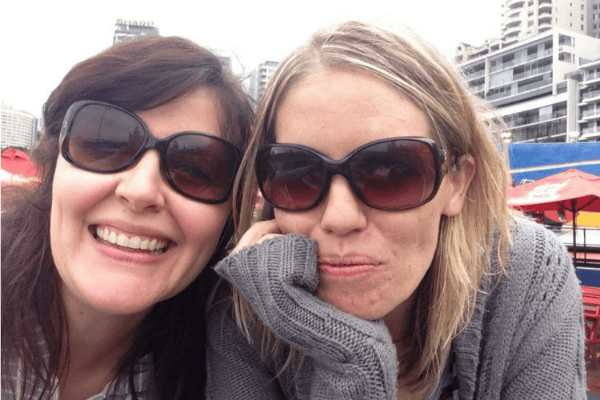
If you or a loved one is struggling with an eating disorder, support is available via the Butterfly Foundation. Visit the website or call 1800 33 4673 to speak to a trained counsellor.
When you hear the word anorexia, you typically imagine teenagers or young women. But what I have learned is that this illness casts a far wider net.
As I write this, my 39-year-old sister lies in an Intensive Care Unit. She is being tube-fed, in order to keep her alive. She has been told that if she doesn’t stick to this new plan, then a doctor will eventually tell her three children that their mother is dead.
She is the face of anorexia that most of the world doesn’t see.
***
It’s hard to pinpoint exactly when it all started. As a sufferer of depression and anxiety since her early teens, she has always had her fair share of struggle. Yet she managed to keep it at bay, and over the years she has built a life that ticks all the boxes: successful career, intelligent, lovely husband, three divine children, and a family that love her. What we have all learned is that none of this is enough to block the force of mental illness.
Looking back, there were signs that all was not right. She was exercising every day. She couldn’t miss a workout, or a run. She was often seen in the pouring rain pounding the pavement, compelled by a force we knew was slowly taking over yet we were powerless to stop. She was eating less, but it took a while to notice because part of anorexia is the secretive, self-destructive behaviours around food. She seemed to be increasingly struggling with her depression.


Top Comments
I completely agree that the plight of older adults with eating disorders is underserved and treatment regimes are usually based on treatment developed for teens or young women - like treating stage 4 cancer with stage 1 interventions. I run a private FB group with more than 900 members that is limited to members who are nearing or over 40. I hear their horror stories every day, and it breaks my heart that most older people are unable to access treatment, or unable to access appropriate treatment. I wish you so well with your sister, I wish I could change all this tomfoolery in services that do not consider our unique needs.
Just flawed by the palpable feelings of helplessness and desperation experienced by your sister, you and your family! It is so true that women are less likely to prioritise their own health, physical and mental, over the competing needs of so many others in their lives. But as I'm sure you have seen first hand, when the mother suffers, everyone suffers. Sending you and your family love and healing for your sister xx